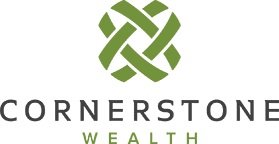Physicians, Can You Afford to Work Less? How to Run the Numbers
Physicians, Can You Afford to Work Less? How to Run the Numbers
Advanced Financial Planning for Mid- and Late-Career Physicians
Reclaim Your Time Without Sacrificing Your Income
Physicians today face immense pressures both in and out of the exam room. Burnout is at an all-time high, and according to recent studies, more than 40% of doctors are considering retirement, reducing their hours, or leaving clinical practice within the next three years.
Changes in Financial Planning for Physicians
For most mid- to late-career physicians, the decision to work less isn’t about walking away from medicine. It’s about achieving a healthier balance between family, personal well-being, and financial confidence.
How Do You Cut Back Hours But Still Earn Well?
It’s the central question that keeps many physicians up at night: Is it genuinely possible to reduce your workload, provide for your family, and safeguard your long-term goals?
Fortunately, thoughtful cash flow planning for doctors makes this goal more achievable than ever.
In this guide, we’ll explore practical, data-driven strategies to help physicians discover flexible pathways in their careers, while sustaining the lifestyle, purpose, and income they’ve worked so hard to achieve.
Why More Physicians Want to Cut Back (But Not Fully Retire)
The New Reality: Changing Priorities for Mid- and Late-Career Physicians
Burnout is reaching unprecedented levels in medicine, especially among mid- and late-career doctors. Recent data reveals that over 70% of physicians in their 40s plan to retire in their 50s or early 60s, but only 12% want to stop working altogether.
Instead, most want a healthier work-life balance, more time with family, or a chance to pursue outside interests, all while keeping their finances on track.
Balancing Family, Purpose, and Financial Security
Heavy administrative burdens (physicians now spend up to 35% of their time on paperwork) and the intense demands of patient care have prompted many physicians to rethink their professional path.
Still, most doctors see cutting back as a transition, not an end, seeking phased retirement, part-time work, or non-clinical roles that offer both purpose and flexibility.
“Phased Retirement”: The Preferred Path for Today’s Physicians
Rather than an abrupt, all-or-nothing exit, today’s physicians are increasingly drawn to phased retirement. This approach allows you to gradually reduce clinical hours, test new roles, and protect your sense of purpose while still prioritizing your family’s security.
The challenge? Many physicians wonder if they can maintain financial confidence and a comfortable lifestyle amidst these changes.
Cash flow planning for doctors provides solutions that empower you to align career decisions with your values, stay engaged, and continue earning well on your terms.
The Unique Financial Challenges for Physicians Who Cut Back
What Happens to Income and Benefits When You Reduce Clinical Work?
For many physicians, the idea of working fewer hours brings a wave of financial questions. Can you still cover your existing obligations? Will your lifestyle suffer?
Cutting back can lead to reduced income, shifting benefit eligibility, and less predictable cash flow. If you have ongoing mortgage payments, children nearing college, or other financial commitments, it’s natural to worry about how everything fits together.
Managing Debt, Obligations, and Lifestyle Expectations
Studies show that53% of doctors worry about whether they’ll have enough money if they cut back, and 44% are concerned about losing their sense of purpose.
Even with a healthy income, many mid- and late-career physicians still manage medical school loans, family expenses, or business debt tied to their practice. Add in the cost of maintaining long-term goals, retirement savings, travel, supporting adult children, and the stakes get higher.
Cash Flow Planning for Doctors: Avoiding Unwanted Surprises
The good news? With the right strategy, these challenges become manageable. Reliable cash flow planning for doctors can model exactly how changes in your schedule or role impact your take-home pay, benefits, taxes, and broader financial picture.
By stress-testing scenarios before making a move, you can feel confident in your ability to maintain your lifestyle while pursuing a more balanced career.
“Physicians face a unique set of financial and personal challenges as they consider cutting back at work. My role is to listen, understand what matters most to you and your family, and then build a clear, comprehensive plan so you feel empowered—not anxious—about the next chapter.”– Matthew Sandberg, CFP®, Wealth Advisor, Cornerstone Wealth
Practical Ways to Cut Back Hours—And Keep Earning Well
Locum Tenens & Telemedicine: Maximizing Income with Flexible Work
Many physicians transitioning to fewer hours discover that locum tenens assignments and telemedicine roles provide considerable flexibility, without sacrificing income.
Locum tenens lets you control your schedule, take extended breaks, and often earn competitive pay based on your specialty and workload.
Telemedicine has experienced explosive growth, enabling doctors to consult with patients remotely, reduce administrative burdens, and design a more flexible workweek that suits their lifestyle.
Real Estate -AND- Other Passive Income Streams
Diversifying your income sources can provide an added layer of security and freedom. An increasing number of doctors have successfully leveraged real estate—owning rental properties or investing in REITs—to build steady, passive revenue.
Real estate not only supplements clinical income but also brings potential tax benefits and can help smooth cash flow as you shift your main work hours.
Teaching, Consulting, and Non-Clinical Roles for Physicians
Cutting back on clinical work doesn’t mean losing professional identity or impact. Many accomplished doctors find new purpose and income by teaching, consulting for healthcare companies, writing, or serving as expert witnesses.
These roles not only offer flexibility and challenge but can also generate well-compensated, non-clinical cash flow. 88% of physicians expect to continue working in some professional capacity even after they’ve begun stepping back from primary practice.
Physician Family Financial Advisors: Integrating All the Pieces
Working with a specialized fiduciary financial advisor can help you develop a balanced and sustainable approach. A physician family financial advisor will consider all income sources, model realistic cash flow scenarios, and help you select the best avenues to meet your goals—so you can reduce your hours and still earn well, confident your broader plan is on track.
Tax-Smart Strategies to Protect and Grow Your Wealth
Reduce Taxes as a Doctor—Year by Year
Transitioning into a reduced clinical schedule opens the door to new, often-overlooked tax strategies.
Lower-income years may create opportunities for Roth IRA conversions, allowing future withdrawals to be tax-free.
If you pick up consulting or locum work as a 1099 contractor, you can establish a Solo 401(k) or SEP-IRA, deferring more pre-tax dollars and boosting retirement savings.
Coordinated Tax Planning for Physicians
For doctors based in North Carolina or South Carolina, knowing how state taxes treat retirement income, pensions, and distributions is key. Some consider relocating to tax-friendly states like Florida, where there’s no state income tax on retirement withdrawals—a move that can significantly enhance post-work cash flow.
Wealth management firms in Charlotte, Huntersville, and similar markets can guide you through the nuances of state-by-state tax implications, as well as strategies such as 1031 exchanges, which are particularly beneficial for real estate investors.
Wealth Management Firms Huntersville: Local Solutions with National Expertise
Collaborating with a fiduciary financial advisor who understands both local tax laws and the unique needs of physician families ensures your strategies are fully personalized. Advisors coordinate with CPAs to optimize deductions, charitable giving plans, and income timing—helping you retain more of what you earn as your career evolves.
Early and Flexible Retirement: Yes, It’s Achievable
Retire Early as a Doctor: What It Takes
For many mid- and late-career physicians, “retirement” isn’t about quitting altogether—it’s about gaining the freedom to choose how, when, and where you work. Research shows that 70% of physicians in their 40s aspire to retire in their 50s or early 60s. The majority estimate they’ll need about $3.9 million in savings for a comfortable, confident transition.
Achieving Satisfaction—Why Phased Retirement Is Best
While the goal is clear, so are the risks: Doctors who stop working abruptly before age 60 are twice as likely to feel dissatisfied in retirement compared to those who transition gradually.
A phased approach—such as reducing clinical hours, incorporating telemedicine, or pivoting to consulting—can help maintain purpose, routine, and cash flow.
Financial Planning for Physicians Enables Flexibility
Early and flexible retirement isn’t just a dream, it’s within reach with holistic planning and the right advisor.
By stress-testing your financial scenarios and modeling your “work-optional” lifestyle, you can map out exactly when and how it’s safe to pull back, secure in your ability to support your family and future.
The Critical Role of a Fiduciary Financial Planner for Physicians
Fiduciary Financial Advisor Huntersville: A Physician’s Trusted Partner
As you plan to cut back clinical hours or move toward retirement, expert guidance can make all the difference. A fiduciary financial advisor is legally and ethically bound to act in your best interests—unlike many financial professionals who operate under suitability standards.
This level of trust is especially vital for physician families navigating unique earning patterns, tax rules, and investment opportunities.
Physician Family Financial Advisors: Built for Your Journey
Recent research indicates that72% of physicians work with a financial advisor, and those who do are 82% more likely to express satisfaction with their retirement.
An experienced fiduciary financial planner will customize a strategy for your goals—integrating cash flow planning for doctors, retirement savings, tax optimization, and even real estate or business succession plans.
Wealth Management Firms Huntersville: Customized Local Solutions
For doctors in Huntersville and nearby communities, access to a fiduciary financial advisor versed in regional laws and medical career paths provides added confidence.
Wealth management firms in Huntersville understand the needs of physicians and local tax nuances, helping you work less, earn well, and secure your desired future.
Designing Your Personalized Transition Plan
Cutting back hours doesn’t have to mean sacrificing income or security. With financial planning for doctors customized to your career and family needs, you can model cash flow, forecast taxes, and explore new income streams confidently.
Partnering with a fiduciary financial advisor or a Charlotte-based wealth management firm ensures you receive expert, physician-focused guidance.
“Every financial decision is personal. My goal is to simplify complexity and help you create a strategy that not only aligns with your goals and values, but also preserves your legacy—no matter where you are in your career.”Matthew Sandberg, Wealth Advisor for Physicians
Ready for your next step? Schedule a consultation or access our simplified financial planning playbook for physicians today.
This is for informational purposes only and does not serve as personal advice. Please speak to a qualified representative regarding your unique circumstances. Links within this blog are not associated to Cornerstone Wealth and are subject to change. Hyperlinks will take you to a third-party website whose content Cornerstone Wealth does not control. Investment advisory services offered through Cornerstone Wealth Group, LLC dba Cornerstone Wealth, an SEC registered investment adviser.

